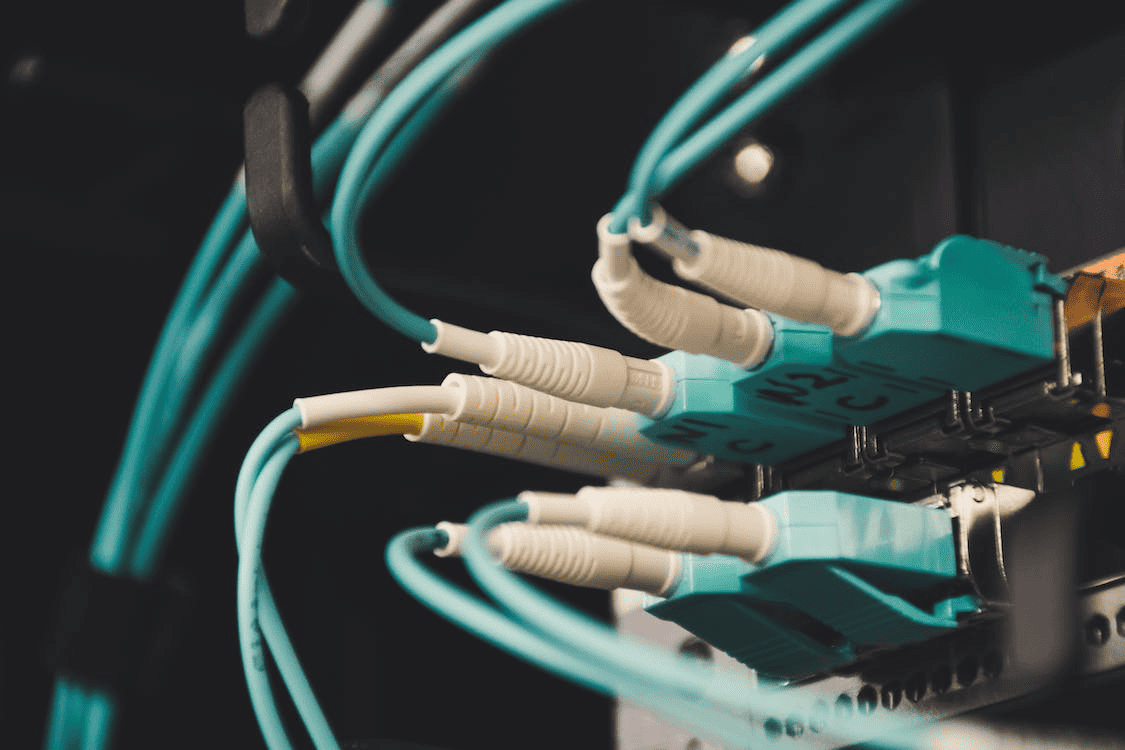In today’s rapidly evolving digital landscape, businesses face an ever-growing array of cybercrime issues, with more than 80% of businesses at security risk. From malicious cyberattacks to internal threats, ensuring the integrity and security of network infrastructure is paramount. These cybersecurity challenges cost businesses trillions of dollars.
Therefore, in this interconnected world, where businesses and organizations rely heavily on digital infrastructure, the importance of safeguarding networks and data cannot be overstated.
At Eclipse Forensics, we provide digital forensic services in Florida. We have been providing professional network forensic services since 2005 via a team of cyber forensic experts.
Understanding Network Forensics
Network forensics, an essential subset of digital forensics, plays a crucial role in securing and maintaining the integrity of networked systems and data.
Definition and Scope of Network Forensics
Network forensics is a specialized field within the realm of digital forensics. Network forensics encompasses a set of techniques and practices that involve the monitoring, analysis, and investigation of network traffic, devices, and activities.
By analyzing data traversing computer networks, experts in network forensics can uncover the who, what, when, and how of suspicious activities, whether they involve cyberattacks, data breaches, or internal threats.
Its scope extends from the identification of cyber threats, intrusions, and vulnerabilities to the recovery and analysis of digital evidence associated with network-related incidents. In essence, it’s the discipline of unraveling the mysteries within the digital realm of networks.

The primary goals of network forensics are to:
Detect Intrusions and Suspicious Activities: Network forensics helps identify unauthorized access, cyberattacks, and suspicious behaviors that may compromise the network’s security.
1. Collect Evidence:
It collects digital evidence, such as log files, network traffic data, and system artifacts, to establish a clear record of network activities.
2. Investigate Incidents:
Network forensics aids in the investigation of security breaches, data breaches, insider threats, and other network-related incidents.
3. Prevent Future Incidents:
By analyzing past incidents, network forensics contributes to refining security measures and implementing preventative strategies.
The Growing Significance of Digital Investigations
As digital technology continues to advance, so too does the need for investigations into cyber incidents. The digital landscape is evolving, making it both a source of opportunity and a battlefield for cybercriminals. Organizations must acknowledge that the digital realm is no longer isolated from the physical world; it’s now an integral part of it. This shift underscores the urgency of digital investigations, including network forensics.
The evolution of network forensics closely parallels the growth and complexity of computer networks and the internet. Initially, network forensics focused on basic packet capture and analysis. However, as networks expanded, diversifying into local area networks (LANs), wide area networks (WANs), and the internet, so did the field of network forensics.
Today, network forensics is more critical than ever due to the pervasive use of digital technology and the alarming increase in cyber threats. As networks become more intricate and as cybercriminals develop sophisticated attack vectors, organizations must rely on network forensics to defend their digital assets and maintain data privacy.
What Are The Top 7 Benefits of Network Forensics for Businesses?
Network forensics offers a multitude of advantages that significantly enhance an organization’s cybersecurity and incident response capabilities.
Here are the top seven benefits of network forensics for businesses;
1. Detection and Prevention of Cybersecurity Threats
Identifying Intrusions and Attacks:
Network forensics empowers businesses with the ability to detect intrusions and cyberattacks as they occur. By analyzing network traffic, businesses can monitor for suspicious patterns, unauthorized access, and potential threats. This early detection allows companies to thwart attacks and protect sensitive data.
Analyzing Malware and Suspicious Activities:
Network forensics tools play a crucial role in the identification and analysis of malware and suspicious activities. They can dissect the behavior of malware within the network, identifying how it infiltrated the system and what data it may have accessed or compromised. This analysis helps organizations understand the scope of an attack and respond effectively.

2. Investigation and Incident Response
Proactive Threat Identification:
Network forensics provides businesses with a proactive approach to threat identification. By continuously monitoring network traffic, organizations can identify emerging threats and vulnerabilities in real-time. This proactive stance allows them to respond swiftly, mitigating potential risks and damages.
Post-Incident Analysis:
In the unfortunate event of a security breach, network forensics comes to the rescue during post-incident analysis. Forensic investigators can reconstruct the events leading to the breach, pinpointing the intrusion’s entry point, understanding the methods employed by the attacker, and determining the extent of data loss or compromise. This knowledge is invaluable in strengthening defenses to prevent future incidents.
3. Data Loss Prevention and Recovery
Identifying Data Leakage:
Network forensics is a crucial tool for identifying data leakage and unauthorized data transfers. By closely monitoring data flows and analyzing network logs, organizations can rapidly identify instances of data exfiltration. This capability is essential for protecting sensitive data, particularly in industries dealing with confidential customer information or proprietary intellectual property.
Data Recovery Strategies:
Should data loss or compromise occur, network forensics is invaluable for devising effective data recovery strategies. Organizations can leverage forensics data to determine the extent of data loss, which is essential for making informed decisions about recovery efforts. By combining backups and forensic analysis, businesses can work toward restoring lost or compromised data, reducing the impact of the incident.
4. Proactive Security Measures
Vulnerability Assessment:
Network forensics allows businesses to conduct ongoing vulnerability assessments by analyzing network traffic. By identifying weak points and potential entryways for cybercriminals, organizations can proactively patch vulnerabilities and bolster their defenses.
Threat Intelligence:
Network forensics tools provide valuable threat intelligence. By monitoring traffic and detecting patterns indicative of specific threats or attack types, organizations can stay ahead of emerging cybersecurity risks. This knowledge enables them to adapt their security measures and threat response strategies accordingly.
5. Regulatory Compliance
Meeting Legal Requirements:
Many industries have specific regulatory requirements for data protection and security. Network forensics assists businesses in adhering to these regulations by ensuring data security, monitoring compliance, and providing the necessary documentation to demonstrate due diligence.
Evidence for Legal Proceedings:
In case of a security incident leading to legal proceedings, network forensics data can serve as crucial evidence. It helps organizations prove the nature and extent of the breach and defend themselves in a legal context.
6. Business Continuity and Disaster Recovery
Maintaining Business Operations:
Network forensics can play a role in maintaining business continuity. By identifying disruptions and their causes, businesses can take measures to restore services quickly and prevent further interruptions.
Disaster Recovery Planning:
Forensic data assists in the development and improvement of disaster recovery plans. It provides insights into potential points of failure and aids in devising strategies for rapid recovery after incidents like cyberattacks or natural disasters.

7. Employee Productivity and Behavior Monitoring
Resource Optimization:
Network forensics tools can assist in monitoring employee activities and resource usage. This data helps organizations optimize resource allocation, ensuring that network resources are utilized efficiently.
Policy Compliance:
By observing employee behavior and network traffic, businesses can ensure compliance with corporate policies. Any violations or breaches can be identified and addressed promptly.
What Are The Tools and Technologies Used In Network Forensics?
Network forensics relies on a myriad of specialized tools and technologies to collect, analyze, and interpret network data. These tools empower forensic experts to uncover insights and potential threats. Here are fourteen key components;
1. Packet Capture Tools
Packet capture tools, also known as packet sniffers, capture network traffic data, including packets, frames, and headers. These tools are fundamental in network forensics as they enable the collection of raw data for analysis.
2. Protocol Analyzers
Protocol analyzers decode network protocols, allowing forensic experts to understand communication patterns and identify anomalies. They help in identifying any deviations from standard network behavior.
3. Network Probes
Network probes actively monitor network traffic in real-time. These devices passively inspect the data and can trigger alerts based on predefined rules or anomalies, enabling immediate responses to suspicious activities.
4. Data Analysis Software
Specialized data analysis software is used to process and analyze captured data. These tools can sort and filter large datasets to extract relevant information and evidence.
5. Forensic Imaging Software
Forensic imaging tools create a bit-for-bit copy of a network or system’s storage. This ensures that original data is preserved, making it admissible in legal proceedings.
6. Log Management Systems
Log management systems centralize and manage logs from various network devices, applications, and systems. They assist in tracking user activities and identifying security incidents.
7. Malware Analysis Tools
In cases where network forensics reveals signs of malware, malware analysis tools are employed to dissect and understand the malicious code’s behavior, origins, and potential impact.
8. Data Recovery Software
Data recovery tools help in retrieving lost or deleted data. In network forensics, they can be invaluable in recovering critical evidence.
9. Reporting and Documentation Tools
Robust reporting and documentation tools allow forensic experts to present their findings clearly and concisely. These reports are crucial for legal proceedings, audits, or internal investigations.
10. Encrypted Traffic Analysis Tools
As encryption becomes more prevalent, encrypted traffic analysis tools are essential. They assist in monitoring encrypted traffic to identify malicious activities while respecting privacy and compliance.
11. Cloud Forensics Tools
With the shift to cloud-based services, cloud forensics tools are increasingly important. They allow forensic experts to investigate cloud-based data and services.
12. Mobile Device Forensics Software
The proliferation of mobile devices has led to the development of mobile device forensics software. These tools enable the analysis of data on smartphones and tablets.

13. Artificial Intelligence and Machine Learning
The integration of artificial intelligence (AI) and machine learning (ML) enhances the capabilities of network forensic tools. They can identify patterns, detect anomalies, and predict potential threats.
14. Network Traffic Analysis Solutions
Network traffic analysis solutions combine several tools and technologies to provide comprehensive insights into network traffic, enabling the detection of anomalies, intrusions, and potential threats.
Trust Eclipse ForensicsFor Professional Network Forensic Services
Eclipse Forensics is your trusted partner in the realm of network forensics. Our team of certified experts and state-of-the-art tools are ready to analyze your network, detect anomalies, and provide actionable insights to safeguard your business. We have been providing digital forensics services since 2005. Led by Jim Stafford, our team of digital forensic experts has since then worked on numerous cases.
Get in touch with us to explore our comprehensive network forensics solutions and ensure your digital environment remains secure.

